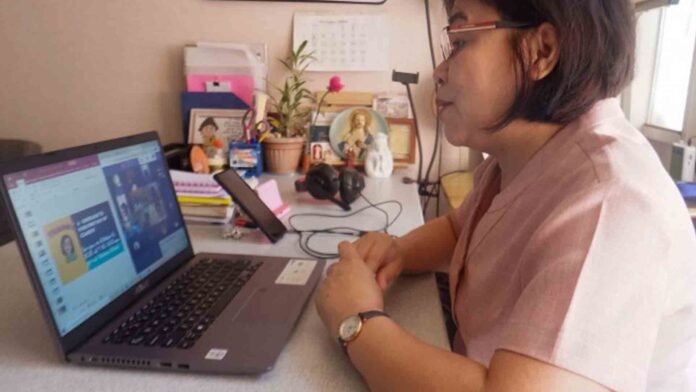A lawmaker at the House of Representatives on Thursday pushed for a measure that will help lessen teachers’ workload and will make continuing professional development (CPD) free and more learner-oriented.
During the hearing of the House Committee on Basic Education and Culture on House Bill 6231 or the proposed Teacher Empowerment Act, Albay Rep. Joey Salceda said that one problem in the basic education system is that teachers are unable to focus on teaching due to their non-teaching functions.
Salceda said the complex, compliance-based, and bureaucratic education system has imposed several administrative burdens on teachers, which in turn resulted in substandard education outcomes.
“Teachers are the front-liners of any education system. The quality of education rises and falls on the amount and quality of support extended to teachers,” Salceda said. “Teachers now perform everything from 4Ps compliance reports to student registration requirements. Until recently, the idea was even floated that teachers, with little training in healthcare, be tapped into as vaccinators.”
Salceda cited the latest Programme for International Student Assessment (PISA) results revealing that the Philippines scored 353 in mathematics, 357 in science, and 340 in reading, all below the average of participating Organisation for Economic Co-operation and Development (OECD) countries.
“If you are not allowing teachers to focus on teaching, you are also not allowing learners to learn from teachers,” he said.
The bill includes the following features: alternative routes to teaching for highly qualified individuals; statutory eight-hour weekly limit to teachers’ administrative work; creation of support administrative staff such as school and district statistician, and government programs coordinator; and establishment of an administrative internship program where qualified high school students may assist in teachers’ administrative functions.
Other features include preferential scholarship grants for teacher-deficit and remote areas to ensure that there are available teachers who live near remote schools and to dispense with the need to assign teachers from far places; free learner-based professional development programs for public school teachers; merit-based grants to create professional development programs.
“My bill will allow teachers to focus on what they do best: teaching,” Salceda said.
The bill also creates a scholarship for residents of remote areas so that they can be teachers in their local schools, instead of having to assign teachers who do not live in those areas, often with risks to their safety. (PNA)






